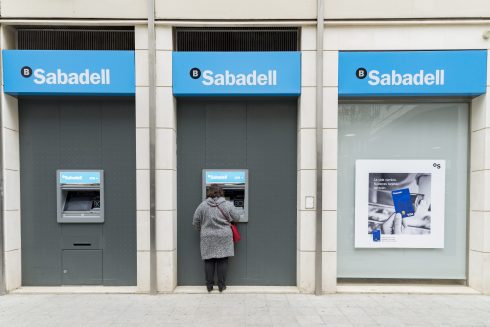If your website is a treasure trove of great content, products, or services, but no one can discover it through Google, then it’s like that value is hidden away where it can’t be appreciated. Rankings in search results are the lifeblood of online visibility. Without them, even the most amazing website will eventually wither and become irrelevant.

There are many potential culprits why your website is not ranking well or why your Google rankings dropped unexpectedly. Most of them tend to fall into a few core categories that need to be diagnosed and corrected.
Keyword Usage Issues
Keywords are the terms and phrases that help Google understand what your website and content relate to, so it can match pages appropriately to relevant searches. However, using keywords haphazardly, unnecessarily, or excessively can quickly backfire.
In the early, ruthless days of SEO, many unethical website owners would stuff pages full of as many keywords and variations as possible in blatant attempts to deceive and manipulate Google’s rankings. This user-hostile, spammy tactic is now easily detected and penalized.
Check the pages that lost their positions in search results and look for signs of keyword overuse, such as:
- Awkward repetition of certain words or phrases beyond natural usage
- Listing out cities, services, etc. in an unnatural, robotic way
- Excessive use of close keyword variations of the same root word (e.g., “run”, “runner”, “running”, “ran”, etc.)
- Blocks of text or copy that is seemingly keyword-focused gibberish.
The key is to use your target keywords naturally and judiciously throughout your content in a way that focuses on providing a good user experience first. Don’t force keywords in an unnatural or gratuitous way just for Google’s sake.
Thin, Low-Quality Content
To rank well on Google, your content needs to be comprehensive, authoritative, unique, and genuinely valuable for users. Pages with just a few brief, trivial paragraphs are extremely unlikely to satisfy Google’s standards or meet searchers’ needs.
Google’s core algorithms are designed to surface the best, most thorough, in-depth content for any given query or topic. If your pages only skim the surface and fail to cover a subject from multiple angles, with deep expertise and insights, they will have a near-impossible time competing for meaningful visibility.
The more robust, unique value your content provides and the more evident authority and trustworthiness it projects, the greater opportunity it has for ranking success. Google wants to keep users on its platform by matching them with definitive, superior content assets.
To maximize your content’s potential, go out of your way to make it as exhaustive and enriching as possible. Don’t hold back — leave no stone unturned. Be a go-to resource that becomes unrivaled for expertise on the topics you cover.
Poor On-Site Optimization
Even if you have exceptional content well-optimized with strategic keywords, on-site SEO elements can still hamstring its performance. On-site optimization lays the critical groundwork upon which your content has an opportunity to shine in the search rankings. Overlooking these foundational factors severely limits your pages’ abilities.
Some of the most common on-site optimization issues that can suppress rankings include:
- Improper use and hierarchy of header tags (H1, H2, H3, etc.)
- Non-descriptive, missing, or poorly optimized titles and meta-descriptions
- Unoptimized images (no alt text, missing captions, non-descriptive file names)
- Broken links that create a poor user experience
- Redirect chains and circuitous server redirects
- Duplicate or plagiarized content issues across pages
- Disorganized internal linking structures that make content harder to navigate
- Slow page load speeds that down engagement metrics
- Poorly optimized code increasing overall page weight and bloat.
On-site optimization covers many technical considerations that create a solid architectural foundation. But it also factors in how well your content’s topics are structured and reinforced through relevant internal linking.
Backlink Issues
The quantity, quality, relevance, and diversity of other websites linking to yours is a significant factor Google’s algorithms use to judge authority and trust. A healthy link profile consisting of genuine editorial citations is critical for ranking competitively, especially in more challenging verticals.
However, you need to avoid acquiring links through spammy, artificial, or unnatural tactics that violate Google’s guidelines. This includes things like:
- Participating in private blog networks (PBNs)
- Excessive guest posting purely for links (as opposed to audience exposure)
- Paying for or soliciting listings in shady link directories and listings
- Injecting links into forums, comments, or other user-generated content areas
- Any kind of link scheme, exchange, or shortcut to try gaming Google.
These kinds of tactics aimed at manipulating your link profile rather than accruing authority are easily detected. Penalties can include severe ranking suppression for your entire domain if Google’s algorithms conclude you’ve employed them in an egregious way.
Conversely, failing to link out to any credible third-party sources at all can be its own red flag that makes your site look insular and lacking in objectivity or authority. There needs to be a prudent balance.
Technical SEO Problems
Sometimes ranking woes stem from deeper, more fundamental website architecture and server configuration issues that prevent Google from even being able to properly crawl and index your content in the first place. Technical SEO needs to be squared away before any other optimization efforts can hope to gain traction.
Some of the more common roadblocks in this domain include:
- Canonicalization errors splitting authority across duplicate versions
- Duplicate content across HTTP/HTTPS versions due to improper implementations
- Robots.txt instructions or meta directives accidentally blocking Googlebot
- A tangled website structure inhibiting efficient crawling
- Indexability problems preventing pages from being added to Google’s indexes.
Without resolving these types of foundational issues first, even prolific and intricately optimized content may never get the search visibility and rankings it deserves, no matter the level of effort poured into other tactics. Don’t ignore technical SEO audits aimed at fixing problems inhibiting crawling and indexation.
Shady Tactics and “Tricks”
In the endless pursuit of better rankings, it’s tempting to put faith in various supposed “hacks”, black-hat techniques, or fraudulent services that promise to game the algorithms and manipulate Google. However, most of these kinds of tactics violate Google Search Essentials (Google’s webmaster guidelines) outright, are easily detected, and ultimately do much more harm than good in the long run.
Examples of manipulative tactics you should avoid include:
- Buying rankings through shady SEO services or private ordering platforms
- Cloaking text, links, or keywords to show different content to Googlebot
- Copying or scraping content from other sites to temporarily outrank them
- Setting up doorway pages solely to redirect search engine traffic.
Google cracks down hard on any systematic attempts to deceive its algorithms through underhanded tactics that undermine the integrity of its search experience. The consequences can range from ranking penalties to complete de-indexation and being barred from Google search entirely.
There are no real ethical shortcuts to sustainable, long-term SEO success that won’t potentially jeopardize your brand’s future growth. The upside is never worth the risk of incurring the wrath of an algorithmic adjustment targeting your ill-gotten visibility and traffic.
Final Considerations
While the SEO rules and algorithms governing visibility have changed over time, building lasting authority and presence through organic search remains an unending marathon, not a sprint. Chasing after the latest fad promising to shortcut that journey, or believing in private rank-boosting schemes, will only derail your progress. By understanding and proactively addressing potential issues in each of these areas, you can diagnose why your website may not be meeting its ranking goals on Google. With patience and diligent work following SEO best practices, your online visibility will steadily improve over time. But there are no overnight shortcuts — just an endless marathon of optimization.











